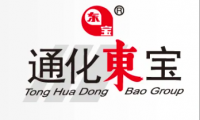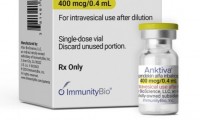-
FDA Drug Approval Marks a New Day for Treating Pediatric Brain Cancer
- Source: drugdu
- 280
- April 26, 2024
-
FDA Approves Amneal’s Naloxone Hydrochloride Nasal Spray as an OTC Treatment for Opioid Overdose
- Source: drugdu
- 408
- April 26, 2024
-
GLP-1/GIP Dual-Target Receptor Agonist (THDBH120 for Injection) Clinical Trial Approval for Weight Loss Indication Declaration
- Source: drugdu
- 424
- April 26, 2024
-
Investors anticipate “bounce-back” in European private investment
- Source: drugdu
- 284
- April 26, 2024
-
Spatial Tissue Analysis Identifies Patterns Associated With Ovarian Cancer Relapse
- Source: drugdu
- 339
- April 25, 2024
-
Unique Autoantibody Signature to Help Diagnose Multiple Sclerosis Years before Symptom Onset
- Source: drugdu
- 448
- April 25, 2024
-
FDA Approves Immunotherapy That Can Spare Bladder Cancer Patients From Radical Surgery
- Source: drugdu
- 310
- April 25, 2024
-
FDA Approves Novartis’ Lutathera for Pediatric Patients with Gastroenteropancreatic Neuroendocrine Tumors
- Source: drugdu
- 543
- April 25, 2024
-
Positive Results from Phase 3 SELECT-GCA Study of Upadacitinib (RINVOQ®) in Patients with Giant Cell Arteritis
- Source: drugdu
- 392
- April 25, 2024
-
First Subject Dosed for Phase 1 Clinical Trial of Henlius’ Novel Anti-GARP/TGF-β1 mAb HLX6018
- Source: drugdu
- 297
- April 25, 2024
your submission has already been received.
OK
Subscribe
Please enter a valid Email address!
Submit
The most relevant industry news & insight will be sent to you every two weeks.













